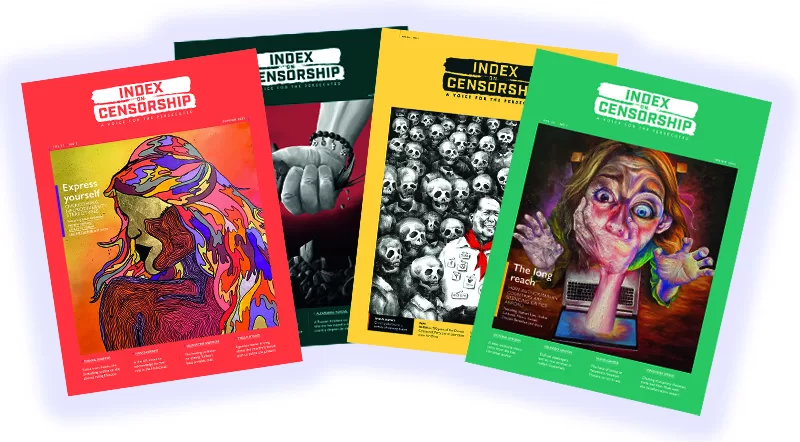
Chris Ames says the Chilcot Inquiry is highlighting flaws of previous Iraq war investigations
The first two weeks of the Iraq Inquiry have seen some very guarded testimony from government witnesses, with the occasional revelation slipping out. But perhaps the most interesting revelation came from Inquiry chairman Sir John Chilcot, who admitted, implicitly and probably inadvertently, that the earlier Butler review of which he was a member watered down its findings.
The revelation shines a light on the process by which establishment inquiries are conducted. In particular it shows the difficulty they have not in getting to the truth but in disclosing it publicly.
In an early session on Iraq’s weapons of mass destruction, Chilcot quoted a well-known claim from Tony Blair’s foreword to the September 2002 dossier on Iraq’s WMD: “What I believe the assessed intelligence has established beyond doubt is that Saddam has continued to produce chemical and biological weapons…” He commented that: “The Butler Committee, I think, came to a view that it was not a statement it was possible to make on the basis of intelligence.” One witness, Tim Dowse, a proliferation expert at the Foreign Office replied: “I think, with hindsight, the Butler Committee made a fair comment.”
The trouble is, the Butler report, published in July 2004, made no such comment. It made no comment on Blair’s claim at all. In fact, it made no comment on Blair’s foreword but merely published it in an appendix and invited readers to “reach their own conclusions.” The report’s main conclusion on the dossier was that while warnings about the limitations of the intelligence underlying its conclusions were not made sufficiently clear, “judgements in the dossier went to (although not beyond) the outer limits of the
intelligence available.” The assessment that it was possible to make the dossier’s claims on the basis of the intelligence available is effectively the opposite of Chilcot’s recent description of the view that the committee came to.
At the time the report was published, the difference was enormous. There is little doubt that had Butler reported that Blair’s claims went beyond what could be legitimately based on the intelligence he saw, Blair would have had to resign. This goes some way towards proving a commonly held perception of establishment inquiries — that they withhold criticism that would have the effect of bringing down the government, on the basis that it is not their role within Britain’s constitutional framework to do this.
Lord Butler is believed to have later regretted that his report was not stronger. In this article of February 2007, three years after his report, he made a similar comment to Chilcot about another of Blair’s claims:
“The UK intelligence community told him on August 23, 2002, that ‘we know little about Iraq’s chemical and biological weapons work since late 1988’. The Prime Minister did not tell us that. He told parliament only just over a month later that the picture painted by our intelligence services was extensive, detailed and authoritative. Those words could not have been justified by the material which the intelligence community provided to him.”
Butler accused Blair of being “disingenuous”, parliamentary language for lying, but did not reveal whether he had reached this view at the time or – if he did – why it was not reflected in his report. I invited Lord Butler to comment on these issues and on Chilcot’s comments but he declined to do so. He did tell Blair’s biographer Anthony Seldon that he believes that Blair’s claim that the intelligence was extensive, detailed and authoritative was the “closest Blair came to the ‘lie direct’. He was perfectly aware of what he was saying and I think his tongue ran away with him.”
Seldon commented that: “Chilcot, who served on the Butler Inquiry, is unlikely to disagree.” The question is, will his report reflect a view that Blair knowingly overstated the intelligence or substitute a watered-down version, that mistakes were made but nobody lied?
The history of the Butler review does not encourage optimism that frankness will prevail. It was reported in the run up to publication of the report that Labour MP Ann Taylor, a committee member and Blair ally, was seeking to have its findings watered down. Butler has never publicly commented on this but there are two views on how an inquiry committee deals with such a situation. One is that a large committee would be able to manage a single dissenter; the other is that the desire to achieve consensus and unanimity leads to a lowest common denominator approach. Another Butler committee member, Michael Mates, told parliament in June that in his experience party politics did not feature in parliamentary committees but that “there was never a vote taken in any Committee that I chaired; had there been a vote taken, I would have considered that I had failed in my job.”
Mates also referred to documents the Butler committee had seen “which will make certain people’s eyes water when they see them” and to secret legal advice that was not shown to the Cabinet which “we were constrained from reporting”. As I have described previously, the new inquiry is constrained not just from publishing incriminating documents but from quoting their contents to witnesses.
During the Inquiry’s hearings, witnesses have more than once expressed the view that they are happy to accept Butler’s published conclusions. It is easy to see why this would be the case. Others, like Mates, do not want to see the new Inquiry “hamstrung” in the way that Butler was.
In order to move the debate on, Dr Brian Jones, formerly of the Defence Intelligence Staff, has today published on the Iraq Inquiry Digest website the entirety of his previously unreleased evidence to the Butler review, which included his written witness statement to the earlier Hutton Inquiry.
Jones would like to see other such evidence published, either by the government or by its authors. In a comment article for the website, he said: “allowing evidence from former inquiries that is not now secret to remain hidden to watchers of this inquiry hardly reflects a spirit of openness and is bound to cause confusion.” He added: “I am concerned that the Inquiry might be investing too much confidence in what the Butler Review uncovered without undertaking the critical reanalysis that I believe is vital.”
I do not disagree with this, but I would add that what the Butler Review uncovered is more revealing than what it reported.




